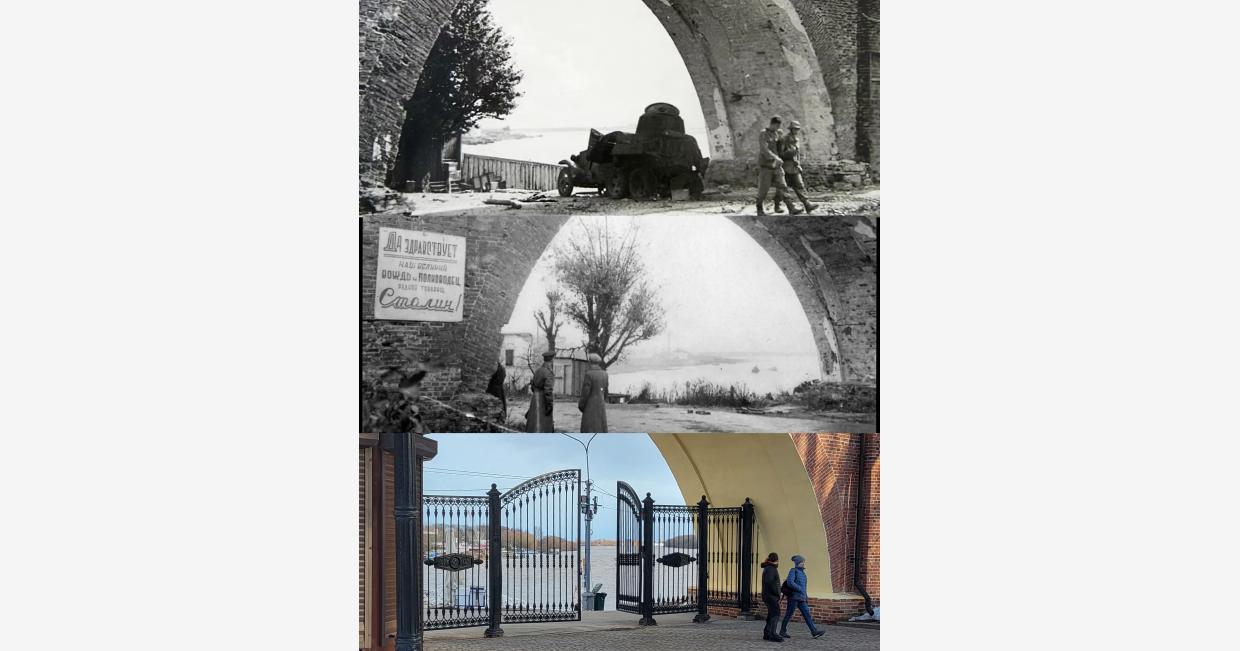Novgorod Kremlin, August 1941/Spring 1944/April 2023
From the German-issued Russian language newspaper "Pravda" meant for the residents of the occupied territories published on August 28th, 1941. The town was captured on August 19th.
"German bomber planes made waves of raids on the town, targeting strategic points and highways. The town went ablaze in many places. The first line of German assault troops was met by machine gun fire, which was rained down on them from the walls of the Novgorod Kremlin, as well as from the cemetery and bell towers. At the dawn of the next day, a new general assault of Novgorod began...
Soldiers of the Red Army opened heavy fire from their rifles and machine guns, but all their efforts to dislodge the Germans from their occupied positions were for naught. The ancient great town of Novgorod, which was besieged in the time of the Mongol Yoke, but wasn't captured by them, was finally in the hands of the Wehrmacht. The capture of Novgorod opens new opportunities for further advance towards Leningrad and the important railroad which connects Leningrad to Moscow, the Red Capital of the Soviet Union."
From the memoir of Ivan Sergeyevich Katyshkin, Deputy Head of 59th Army Staff Operational Department:
"On January 20th, 1944 the troops of the 59th Army established full control of Novgorod. There was no limit to our jubilation! We liberated one of the most ancient Russian towns, the cradle of our national culture, from Fascist invaders. Standing atop its tall hills which stretched along the bank of the river Volkhov, we contemplated with admiration the five-domed St. Sophia cathedral, the Novgorod Kremlin which was once named "detinets"...
We walked across the entire Novgorod. Thousands of houses, factories, plants, ancient cathedrals laid in ruins. Our hearts bled when we were forced to witness these villainous crimes of the Hitlerites. The surviving Novgorodians, old and young alike, flocked to the town's streets, hugging us, their liberators, with joy. And right away they took to clearing the streets from rubble and repairing the surviving buildings.
And I believed: the ancient Novgorod will rise from the ashes to last for centuries to come!"
